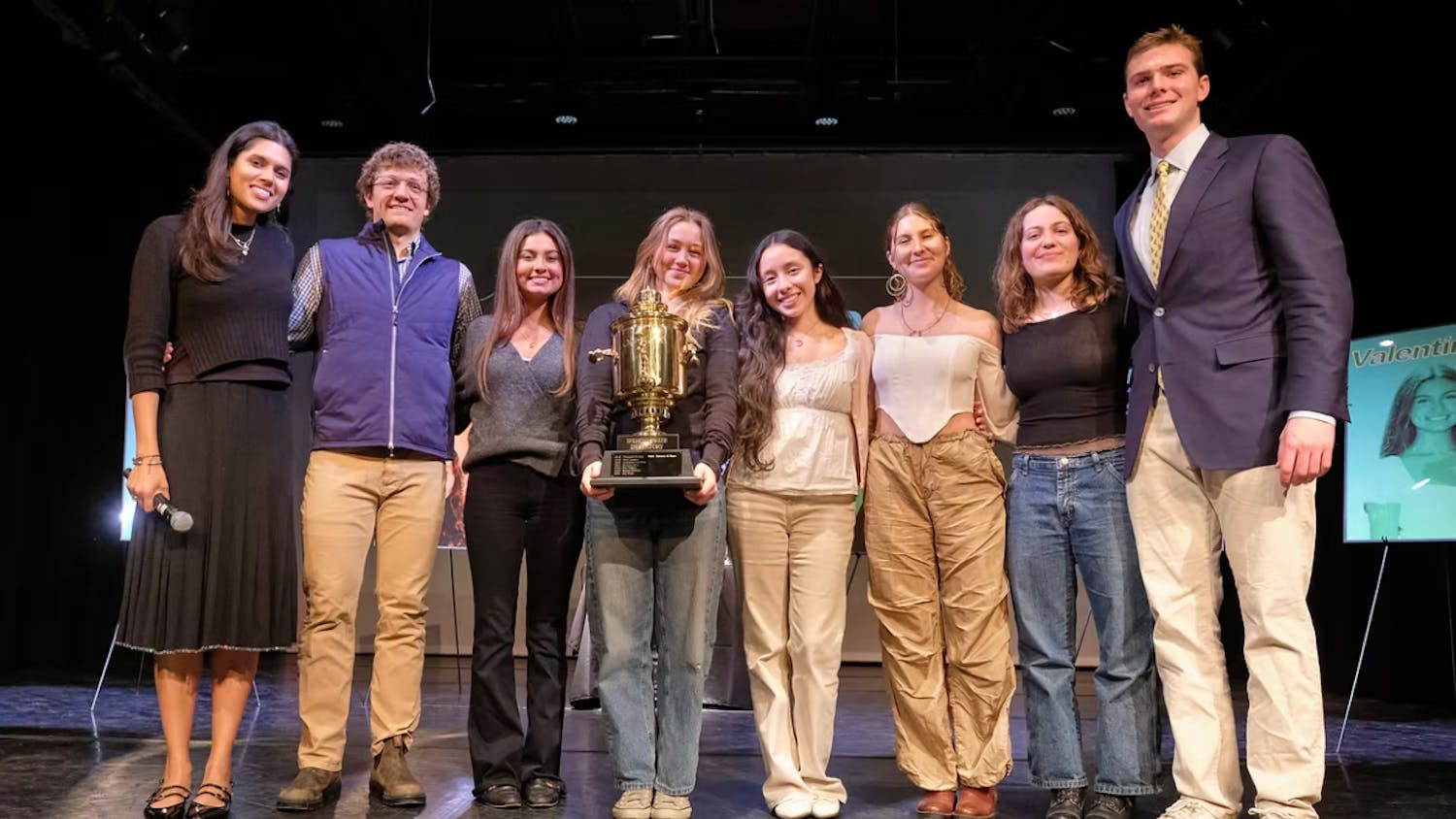The existing twelve engraved pavers outside of BiHall that honor individuals who made significant scientific discoveries have been joined by 24 new pavers recognizing an additional 25 innovators.
The original twelve included the likes of Einstein, Darwin and Hubble, many of whose innovations during the College’s first two centuries of existence had a notable impact on humanity. Other than Marie Curie, however, all of the twelve individuals originally represented are white men, according to an Oct. 16 email from Rick Bunt, associate dean of sciences.
Inaugurated on Oct. 25, the new pavers intend to increase representation of the diversity of the sciences. Of the 25 new individuals, seventeen are women and eleven are people of color. They also feature a greater time span of scientific discovery, from Ibn Sina’s eleventh century Canon of Medicine encyclopedia to Emmanuelle Carpentier and Jennifer Doudna’s twenty first century research on gene editing.
The new pavers are one aspect of a larger grant that Middlebury received from the Howard Hughes Medical Institute this past spring. Spanning six years and awarded to 104 institutions in total, the grant is aimed at strengthening STEM programs, including math, technology, science and engineering, at the recipient colleges and universities.
Middlebury plans to use the funds to make changes that will provide a more equitable and inclusive experience in the sciences, according to the college’s announcement of the grant in March 2023.
The college will receive $531,600 spread over the next six years to support a range of improvements to STEM departments, including faculty development, student engagement and curriculum change.
“In collaboration with our partner institutions, we hope this work will serve as a model for higher education, which must move in this direction for equity and inclusion,” President Laurie Patton said in the announcement. “Our faculty meet frequently and regularly to discuss STEM pedagogy. I know those conversations are creative and insightful, and that deep commitment has paid off.”
Middlebury’s STEM pedagogy group, an informal group of science faculty members who have been meeting to support STEM teaching for years, spearheaded the proposal for the Howard Hughes grant. According to Bunt, who helped lead the grant proposal, the pedagogy group is made up of a number of younger faculty members looking to learn new ways of teaching STEM courses.
“A lot of them have the energy and creative ideas for new ways to rethink things, so this group is actively part of the grant going forward,” Bunt told The Campus.
Howard Hughes Medical Institute research indicates that less than half of the nearly one million students who begin college each year intending to study STEM actually end up completing a STEM degree. The institute’s Inclusive Excellence 3 initiative, the program from which Middlebury received its grant, seeks to combat this loss of talent, particularly among first generation college students and students from historically underprivileged backgrounds, according to the grant announcement.
“If you’re in a classroom with people you perceive as being very different from you, either in ability, experience, or background, do you feel like you belong in that classroom? Or even in that profession? We believe we are able to do things because we have seen people we identify with doing those things. That's what the pavers, and the fund in general want to facilitate,” Bunt said.
Bunt added that Middlebury has become known for having strong, well-rounded STEM programs. The hope, however, is that this grant will help make Middlebury be known for motivating and supporting its students’ interests in STEM fields throughout their entire college experience.
He said that by expanding the college’s support infrastructure for STEM students, the grant will hopefully make the science community at Middlebury more diverse.
“Students coming from certain schools tend to have had more preparation for college than those who come from others, especially underfunded high schools. This isn’t fair. We want to be able to support students when they face fundamental roadblocks, and help them find the most effective ways to study and transfer their knowledge early on,” Bunt said.
The Howard Hughes Medical Institute asked the institutions in Middlebury’s Learning Communities cluster of grant recipients, which included 14 other colleges and universities, to guide their use of the funding based on the question “what processes and methods foster institutional change toward more inclusive and equitable introductory STEM education across a range of institutional types?”
While specific plans for the rest of the funding have not been solidified yet, Bunt said STEM faculty are looking at opportunities to repurpose parts of Armstrong Library in BiHall to include a dedicated support center for STEM students, like what the Center for Teaching, Learning and Research in Davis Family Library offers.
“We want to create a space where students know they can go if they’re having difficulties, whether it be with just an assignment or the entire course. Other universities have STEM focused learning centers like this,” Bunt said. “It's been seen that the additional support facilitates a space where students can connect with other students and faculty members and receive more effective support.”
In the end, Bunt said, Middlebury students should be able to find a pathway to do well in more challenging courses, rather than feeling overwhelmed and unsupported.
“We need to be able to provide the resources so that everyone has the opportunity to take a hard course and feel a sense of accomplishment when they succeed,” Bunt added.
The celebration of the new pavers outside BiHall on Oct. 25 honored not only past scientific advancements, but also the positive changes that Middlebury strives to create on campus with the help of the new Howard Hughes Medical Institute grant.



